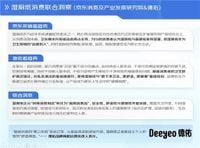The 2025 China Chain Catering Summit recently concluded in Chengdu, emphasizing the theme of exploring new chapters in chain development. Held from April 14 to 16, this summit brought together industry leaders to discuss macro trends, emerging sectors, and the application of new technologies within the catering industry.
During the plenary session on April 14, Peng Jianzhen, Chairman of the China Chain Business Association, addressed the current state of the catering industry. He noted that while the industry saw a 5.3% increase in revenue in 2024, reaching 5.57 trillion yuan, many operators are experiencing a decline in customer spending and corporate profits, resulting in intensified competition.
According to Peng, three major characteristics define the current catering landscape: an ongoing increase in chainization, significant industry differentiation, and the rapid growth of chain catering brands. The chainization rate in China rose from 19% in 2022 to 23% in 2024. Notably, the 'Catering 10,000 Store Club,' which includes leading brands such as Mixue Bingcheng, Luckin Coffee, and KFC, saw a remarkable 69.3% increase in the number of stores year-on-year.
In response to the challenges posed by heightened competition, many catering enterprises are expanding into international markets. This move not only helps in disseminating Chinese culinary culture but also opens new growth opportunities for these businesses. Additionally, executives are increasingly focusing on operational efficiency and innovation, as highlighted by the collection of innovative cases presented at the summit.
Food safety remains a paramount concern for the industry. In light of this, the China Chain Business Association has called for a self-assessment of food safety management effectiveness at the headquarters level. New regulations aimed at enhancing food safety oversight are expected to be introduced soon.
Peng Jianzhen concluded his speech by offering three key recommendations for industry players: prioritize food safety as the foundation of public health and the lifeline of catering businesses; pay close attention to the latest regulations regarding food safety responsibilities; and ensure that food safety management extends down to the smallest operational units.
Wang Hongtao, Vice Chairman and Secretary-General of the China Chain Business Association, delivered a keynote address titled 'China's Catering Industry Moving Towards a New Stage of Management Technology Revolution.' He discussed the unprecedented challenges and opportunities facing the industry, summarizing the growth drivers of seven listed catering companies that have successfully achieved both revenue and profit growth.
These companies, including Yum China and Haidilao, have employed strategies such as scale effects, franchise alliances, and efficient supply chain management to bolster their financial performance. Wang also emphasized the importance of management technology innovation, sharing tools and techniques that could help improve efficiency in a competitive market.
The summit featured several prominent speakers who shared their insights into the keys to success in the catering industry. Su Jinglun, former Chairman and CEO of Yum China, discussed the essential elements that contribute to success in this sector, while Zhang Jiayin, CEO of McDonald's China, shared how the fast-food giant navigates complex market dynamics through integrity and innovation.
Haidilao's Deputy General Manager, Shao Zhidong, reflected on the company's commitment to innovation even amidst challenges. He noted that Haidilao continues to delegate more autonomy to frontline stores to encourage differentiated competition and better meet customer needs.
Furthermore, Hong Mingji, a member of the National Committee of the Chinese People's Political Consultative Conference, explored the historical context of Chinese cuisine's globalization, linking it back to the Silk Road era.
The summit also included discussions on how to cater to the new generation of consumers, with Xu Hengyi, CEO of CFB Group, presenting strategies for engaging young consumers. He highlighted the importance of adapting to changing consumer preferences and behaviors.
Li Yang, a founding partner of Zhuguangyu Hot Pot, shared his experiences with cross-category product differentiation and sustainable innovation, emphasizing the need for brands to adapt and innovate continuously.
Li Xiang, Dean of the School of Cooking and Food Science at Sichuan Tourism College, discussed the importance of talent cultivation in the catering industry, advocating for collaboration between educational institutions and enterprises.
Li Na, General Manager of Yikang China Catering Service Division, presented insights into evolving consumer behavior, noting that modern consumers prioritize social interactions and value for money over traditional marketing methods.
As the summit progressed, various industry leaders participated in roundtable discussions, exchanging ideas on the future of the catering industry. Discussions included strategies for navigating cost pressures and enhancing customer engagement.
Li Hong, Chairman of Xiangcunji, reported a gradual recovery for his company, while Gao Defu, Chairman of Xijia De, noted that their performance remained stable compared to the previous year. Other leaders shared similar sentiments about their businesses adapting to meet evolving consumer demands.
Overall, the 2025 China Chain Catering Summit served as a pivotal platform for industry stakeholders to address the challenges and opportunities within the catering landscape. The discussions highlighted the importance of innovation, food safety, and strategic adaptation in ensuring sustainable growth in an increasingly competitive environment.







